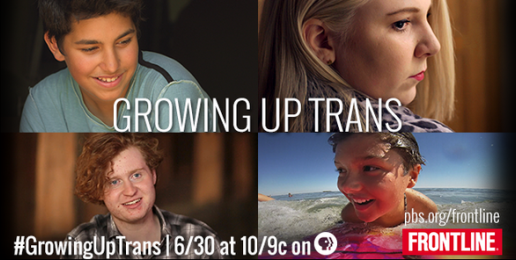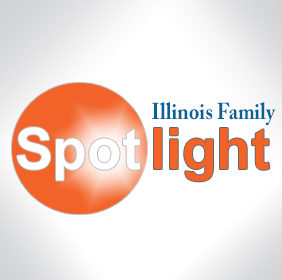
I have long said that the cultural tide will turn against sexual anarchy when its child victims grow up and tell their stories. In a culture that rejects reason and faith while concomitantly exalting subjective feelings, narratives carry immense power.
Eventually children who have been acquired by couples in inherently sterile homosexual unions will tell of their feelings of sadness at being intentionally deprived of a mother or father. Children of lesbians will expose the emotional and relationship instability in their homes. Children of homosexual men will share the pain of being raised in homes where promiscuity or sexual “non-monogamy” is accepted.
And one day, gender-dysphoric children will tell their tragic stories—children whose parents were persuaded that allowing their confused children to “transition” was not only the appropriate treatment protocol but also the only way to prevent their children’s suicides.
Children who were permitted to take chemicals to prevent puberty (and thus the formative social experiences that attend pubertal physical and emotional changes), who were permitted to take risky cross-sex hormones whose effects—including sterility—are permanent, and in some cases were permitted to have breasts amputated or testes excised will tell their stories.
Surely some will regret never knowing who they would have become if they had been permitted to develop in accordance with their objective nature. Some will regret never having had the social experiences that attend the sex they actually are. Some will regret not waiting to see if their gender- dysphoric feelings abated. Some will regret their sterility. And some will regret the health effects like venous thromboembolism, osteoporosis, or cancer that may result from a lifetime of hormone-doping.
Ironically, “progressives” who oppose trace amounts of hormones in the chicken they consume support the practice of cross-sex hormone-doping for minors for which there is little conclusive assurance of long-term safety. While leftists prefer their free-range chickens to be free of hormonal interference, they’re okay with mad scientists mutilating their bodies and pumping them up with risky chemicals.
The stories of two young women may be the harbingers of more sad revelations to come.
The first story is from Isaac Preiss, the only child of filmmaker Jeff Preiss and painter Rebecca Howe Quaytman, who appears in the Frontline documentary titled Growing Up Trans. Isaac, 19-years-old when the film was made, is objectively female and has followed the entire Dr. Moreau-esque protocol: She took puberty blockers, had a bilateral mastectomy, and continues to take testosterone. Here are her tragic and insightful words:
I started realizing at around age 16, 17 what a huge, huge decision I had made, to embrace this masculine part of myself so deeply. Going through an artificial puberty, I didn’t experience the sort of formative time, and I kind of mourn that…[W]e all know puberty is that sort of gross, slimy molding of everybody into a person, and the way that I went through that was meticulously tested and controlled and dosed….[I]t’s been good, but I wonder what…role [natural puberty] has in a person’s conception of his or her gender. And I can never know that.
None of this is to say I made any…wrong decision or regret transitioning because it was really painful to be presenting as male and not be on testosterone and not have top surgery [i.e., bilateral mastectomy], and my mind was really cleared of that sort of pain after that….But it’s become really clear in recent years that any sort of big problems that I thought I would fix by transitioning weren’t really fixed.
I really don’t like to use the term regret, although it’s kind of hard to speak about how I feel about my gender without there being some element of regret or at least of fear…of what the implications of the choices that I made are. I’m putting a chemical into my body once a week….And there are very, very, very clear effects of that. And I’m assuming that there are also unclear effects. I mean, it is super easy as a kid to hear that these things are irreversible, and be like “Okay, I don’t care….I want it!,”…because you don’t think of time in the same way when you’ve only experienced a tiny, little sliver of it.
…I would like at some point to take a break at least from testosterone because I don’t like to imagine that the entirety of the time that I spend on this earth will be spent…separate from what my body actually is…I don’t really know what it is to be a man…in the body I was born in because I’ve only really been a man in the constructed body, which I enjoy and it’s comfortable, but also it’s not really my body.
How difficult it is to hear this young girl express what the adults in her life should have known about the inability of children to comprehend time and the implications of choosing irreversible chemical and surgical mutilation.
Preiss’s regrets are tepid in comparison to the regrets of Dr. Kathleen Levinstein, a professor of Social Work at the University of Michigan, Flint, who describes the suffering her gender-dysphoric daughter has endured as a result of the “treatment” she has received, including cross-sex hormones and a bilateral mastectomy one day after her 18th birthday.
In a short interview, Dr. Levinstein describes the rarely discussed correlation between autism spectrum disorder and gender dysphoria. Perhaps this correlation is little discussed because it suggests that gender dysphoria is likely a disorder of the mind—not a chromosomal defect or a defect of the sexual anatomy.
Levinstein also shares the possibility that gender “therapists” might collude with body-mutilating Dr. Moreaus for ill-gotten financial gain.
And she sounds the alarm about the health risks of cross-sex hormones, about the dangers posed by the perverse organization Parents and Friends of Lesbians and Gays (PFLAG), and about how the selfish, cultural ambitions of the “trans” community stand in the way of research, children’s health, and honest public dialogue:
My daughter, who is on the autism spectrum, as am I, is now 19 years old. She had felt (and told others) that she was a lesbian most of her life. When she was 16, she began watching a TV show called “Degrassi,” which featured an FtoM [female to male] character. After a few weeks, she announced that she was not actually a butch lesbian, as she had previously said, but was in fact trans. She started attending a local PFLAG meeting, where she met many trans people, including a number of FtoM trans teenagers who were raving about a certain “gender therapist.” Although the APA recommends a minimum of one year of “gender counseling” before surgery, this gender therapist (whom I consented to, before really understanding what I was doing) gave my daughter the go-ahead to have a bilateral mastectomy after only two sessions. This gender specialist never reviewed any of the Special Ed records or spoke to my daughter’s previous therapist, who had known her for a decade. And, crucially, she never asked my daughter, “Might you be a lesbian?”
The gender therapist (whom I believe has an unholy financial alliance with the surgeon) gave my daughter (then 18 and one day) the go-ahead for the $30,000 surgery (covered for all university employees and their families where I work). My daughter is now on testosterone (which she clearly is unable to evaluate the risks and consequences of).
…
She has been taken advantage of. Healthy organs were amputated. This is insurance fraud, poor clinical practice, a violation of APA standards, unethical and unjust. It is a crime not just against women, but particularly against disabled women. So many of these young women who are “transitioning” are also autistic.
…
You mention that your daughter previously considered herself a lesbian, and this changed when she started watching the TV program “Degrassi.” Was that the only thing that influenced her to claim a trans identity? Was there anything else?
Other than Degrassi, the PFLAG meetings–which are now the cult of trans–sealed her fate. There were no young lesbians there. In fact, there are very few young lesbians left–they are all transitioning….
She had a legal name change in Dec of 2014, a bilateral mastectomy in April 2015, and started testosterone in Sept 2015. My daughter has severe Crohn’s Disease, and currently, she is having grave reactions to the testosterone. She has been hospitalized three times now for complications.
Many professionals, as well as some autistic people themselves, have written about the fact that young people on the ASD spectrum are often “gender nonconforming” and have a less stable sense of identity. Can you speak to this regarding your daughter?
I DO believe that there is an overlap with the autistic and transgender populations. Some studies show a higher level of testosterone in autistic human beings. For males a high enough level of testosterone converts to estrogen. This may explain the large number of autistic people of both sexes claiming that they are transgender….
[A]nyone asking for critical thinking about these issues with autistics is accused of ableism and transphobia. This is often an effective silencing tactic. I have found no allies in the autism community. Instead, there is a vilification of anyone daring to ask questions about these issues, including the evidence of MtoF physical, sexual and psychological violence against women. Women who publicly question receive death threats, threats to rape us and our children, burn us to death with gasoline, decapitate us, and so on. This all coming from people who claim they are our “sisters.”
Given that your daughter was recently hospitalized for health issues related to her use of testosterone, have you found any medical professionals who are willing to speak up about this?
I have found no health professionals willing to go on the record against this. Everyone is afraid of professional suicide and threats of violence. I am standing alone.
My daughter’s latest hospitalization has been described by doctors as due to “absorption issues.” She now has a full beard but still has her period. The testosterone is wreaking true havoc on her system.
Autistic women (again, I am one) frequently have a difficult time, sensory-wise with their periods. But rather than attempting to help us with this difficulty, our problems get labeled “gender dysphoria” and the answer has become to remove our periods from us.
We will find out in 20 years the effects of testosterone on our young women. I am confident that it will not be a pretty picture.
Dr. Levinstein is wise to question the eagerness with which many in the medical communities advocate quack chemical and surgical interventions for gender-dysphoric minors. A 2015 Finnish study on gender-dysphoric adolescents reveals some surprising—and for “trans”-activists, inconvenient—results:
Of children with even severe gender dysphoria and cross-sex identification, about 85% do not develop a persistent transsexual identity in adolescence….
…
Adolescence is a period of identity formation….Identity is formed through diverse physical and psychological developments and in relation to other people and the social environment. An adolescent also faces fundamental identity challenges in the domains of religion, worldview, ethnicity, sexuality and the like. Identification with various groups is often passionate during adolescence, but the object of identification may also change, even several times. Adolescents are more suggestible and submit more readily to group pressure to gain acceptance. Adolescence is a period of maturation of social cognition, and a prerequisite for the maturation of social cognition is the maturation of the central nervous system that continues to the third decade of life. During puberty and adolescent development there may be some overlap between normative testing of sexuality and gender roles in the one end, and gender dysphoria [GD] as a disorder in the other end of the spectrum. This would implicate that GD in adults and in adolescence may not be the same issue in general. For these reasons it is more challenging to assess whether the gender identity of an adolescent is so firmly established that physical intervention is indicated than it is to assess this among adults.
In the majority of the applicants, gender dysphoria presented in the context of wider identity confusion, severe psychopathology and considerable challenges in the adolescent development. At this point it is not possible to predict how gender dysphoria in this group will develop: will gender dysphoria in these adolescents cease with the resolution of wider developmental problems, or perhaps consolidate later into transsexual identity, with the completion of the developmental tasks of adolescence.
…
Adolescents seeking sex reassignment [SR] represent a variety of developmental pathways differentiated by the timing of onset of gender dysphoria, psychopathology and developmental difficulties. It is important to be aware of the different groups, or developmental pathways, in gender dysphoric adolescents in order to be able to find appropriate treatment options. In the presence of severe psychopathology and developmental difficulties, medical SR treatments may not be currently advisable. Treatment guidelines need to be reviewed extended [sic] to appreciate the complex situations.
Perhaps this Finnish study will throw a monkey wrench into the barbaric works of leftists. Oh, who am I kidding. Leftists don’t really care about the welfare of minors. For them, everything is political, including children’s health.

























